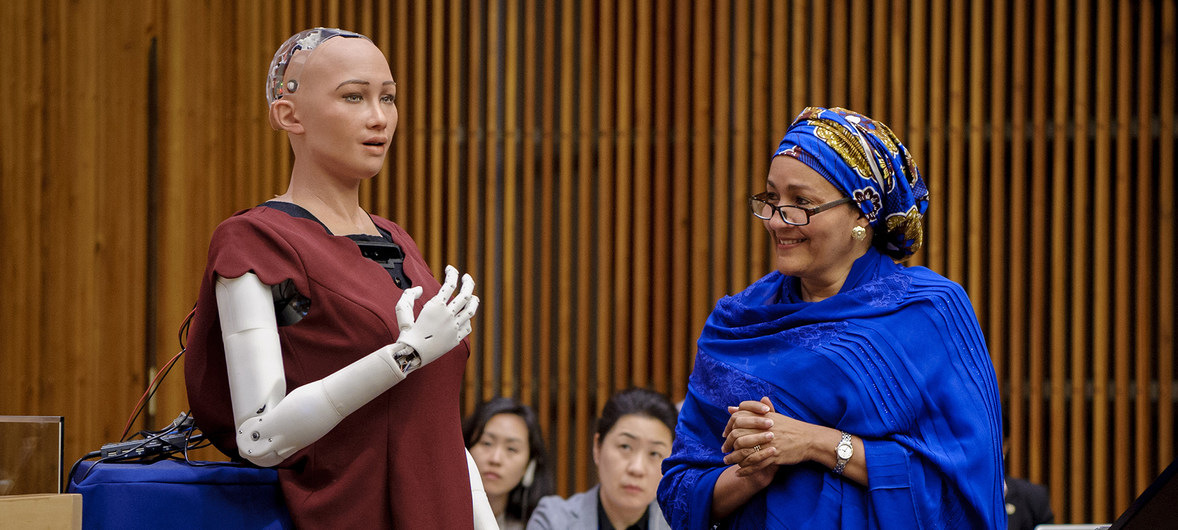
The Baha’i International Community partnered with the United Arab Emirates and the NGO Committee on Social Development to host a side event entitled “Artificial Intelligence: Ethical Dimensions of the Virtual World”.
Drawing more than 100 diplomats, policy makers, and civil society actors, the online panel discussion, held February 10th, responded to the Commission’s focus on the role of digital technologies in providing for the well-being of all, specifically focusing on artificial intelligence (AI).
“AI holds great potential to channel the human spirit to address humanity’s most pressing challenges. But that potential can only be truly released when such technologies reflect the full diversity of perspectives and values among the peoples of the world,” said Soraya Bagheri, who moderated the event.
Panel speakers explored a range of ethical questions such as how artificial intelligence can address the needs of diverse local communities, or how innovation and regulation can work hand in hand to advance the common good.
“An ethical framework underlying AI needs to be embraced by more countries and organizations as a key component of business models, not an optional accessory,” noted Major Hamad Khatir, Director of International Partnership in the United Arab Emirates’ Ministry of the Interior, in sharing his government’s experience in establishing the world’s first Ministry of Artificial Intelligence.
Yu Ping Chang, Senior Programme Officer in the Office of the Envoy on Technology at the United Nations, was one of several speakers who emphasized the need for stronger systems of coordination and governance at the global level. “There really is a need for us, as an international community, to consider what the future of AI will bring and how we can come together to better address the challenges,” she noted.
Eline Chivot, Senior Adviser on Digital Policy for the European People’s Party, commented on the need for common principles in this area, stating: “[principles] give flexibility to apply a code that we can all agree on and we collectively adhere to. A sort of moral compass.”
And Douglas Allen, Director of the Daniels College of Business at the University of Denver, noted that progress will depend on willingness to question assumptions about technology that may have sufficed in the past, but are less suited to the task of navigating a digital transition. “Some of those assumptions might include the market as a driver of innovation and wealth, consumption as a key to economic strength, the relationship between work and income, the distribution of resources—even assumptions about human nature itself.”
The event expanded on concepts found in the BIC’s formal statement to the Commission, entitled “Reflections of Our Values: Digital Technologies and a Just Transition.” It was also accompanied by a short video.
Images:




For more information, please visit Baha’i International Community social media channels: Website | LinkedIn | Medium | Instagram | Facebook or write to bic-nyc@bic.org.
 Welcome to the United Nations
Welcome to the United Nations